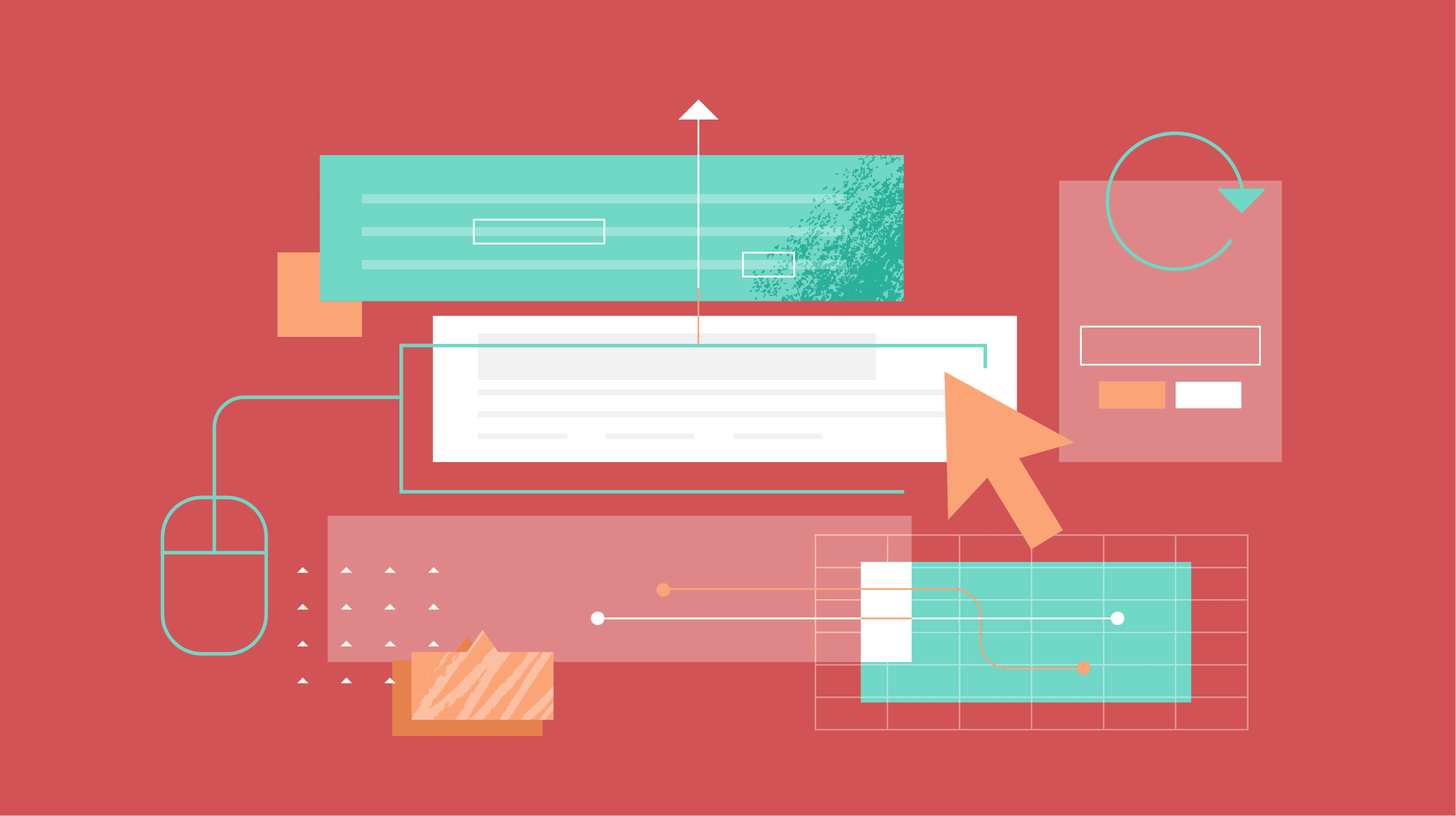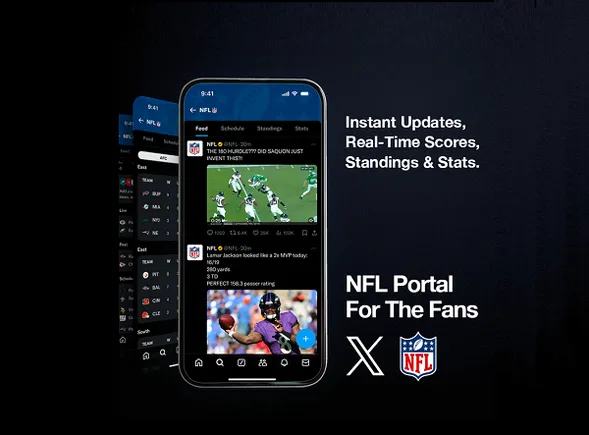The best tablets in 2024: top 8 tablets you can buy now
Here are our picks for the best tablets in every category, so you can find the right one to fit your needs.

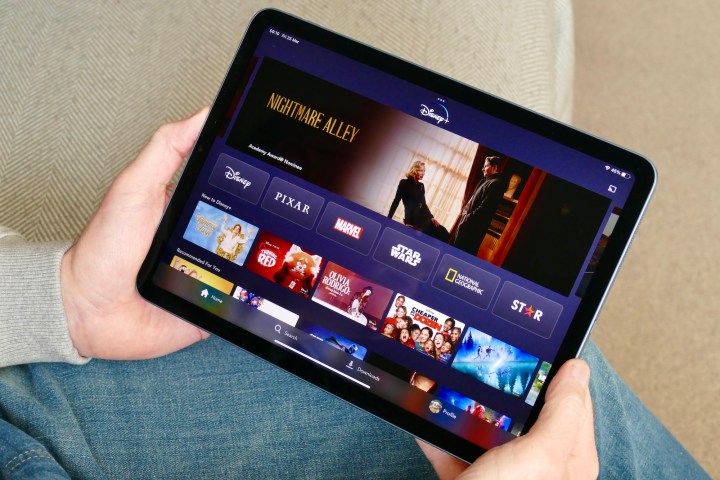 Andy Boxall / Digital Trends
Andy Boxall / Digital Trends
Tired of squinting at your phone, even though it's one of the best? A tablet might be the perfect solution. But with a dizzying array of options available, finding the right one can be tough. That's why we've reviewed the top contenders, from budget-friendly picks to professional-grade powerhouses, and compiled a list of the 11 best tablets for 2024.
Our top choice, the iPad Air (2024), delivers exceptional performance and value. But we understand that your needs might be different. Whether you're looking for an affordable option, a travel-friendly companion, a massive 14.6-inch screen for immersive entertainment, a productivity workhorse, or even a niche e-ink tablet, we've got recommendations for you. Don't settle for anything less than the perfect tablet. Check out our expert buying guide to find your ideal match.
Looking for some sweet tablet deals? Check out our lists of the best iPad deals and the best tablet deals.
 Andy Boxall / Digital Trends
Andy Boxall / Digital Trends
Apple iPad Air (2024)
The best tablet overall
Pros
Thin, light, and portable Huge power reserves 128GB minimum storage Great for games and video Good for general work with a keyboardCons
60Hz screen Slow charging Little incentive to upgradeWhy should you buy this? It offers everything most people want in an Apple tablet — and none of the extras the more costly iPad Pro includes.
Who's it for? Anyone with an older iPad should consider this version. It's our favorite of the year -- the Goldilocks of iPad.
Why we picked the iPad Air (2024):
Are you in the market for an iPad, but want something more than the basic model and less costly than the feature-rich iPad Pro? If so, you're likely not alone. This common scenario brings us to the iPad Air (2024), which strikes the perfect balance in the iPad lineup. It offers a choice of screen sizes, impressive power, and extensive versatility — all at a price in the three-figure range. It's our top tablet pick for the year.
The iPad Air (2024) is an outstanding device that meets the needs of most users, including those who might consider it a laptop replacement, provided they don't require extensive computing capabilities. Given the significant price jump to the M4 iPad Pro and the fact that the 10th-generation iPad is over two years old, the iPad Air (2024) seems to be the ideal choice for nearly everyone this year.
However, if you already own an iPad Air or iPad Pro from the last five years, there are fewer reasons to hold off on an upgrade. The M2 iPad Air (2024) still lacks a 120Hz screen, and the M1 chip in the older Air tablets remains highly capable. Additionally, the last iPad Pro models utilize the M2 chip, and even the 4th-generation iPad Air supports the Magic Keyboard, while all these devices run the same software. Unless you need more storage, there isn't a compelling reason to upgrade from your existing iPad Air or iPad Pro.
If you’re looking for your first iPad or want to upgrade from a significantly older model, the iPad Air (2024) is superb and definitely our pick among the 2024 iPad offerings. Aside from its lack of a 120Hz ProMotion screen, you couldn’t ask for anything more.
Apple iPad Air (2024)
The best tablet overall
 Nadeem Sarwar / Digital Trends
Nadeem Sarwar / Digital Trends
OnePlus Pad 2
The best Android tablet
Pros
Beautiful build and light form factor Reliable stylus and keyboard Great six-speaker setup 67W fast charging Plenty of silicon firepower Beautiful 144Hz display Feature-rich OxygenOS experienceCons
Lack of dust and water resistance No cellular connectivity support OxygenOS could use some refinementWhy should you buy this? It's the best that Android tablets have to offer.
Who’s it for? Anyone who needs a medium-sized tablet with creative, professional, and casual options.
Why we picked the OnePlus Pad 2:
The OnePlus Pad 2 makes a strong case for itself as the top-tier Android tablet in 2024. Its combination of Qualcomm's fastest processor, excellent accessories like a high-quality keyboard and stylus, and promising software features creates a compelling package. The build quality is superb, with standout speakers adding to the premium experience. However, the Pad 2 is not without its drawbacks.
While the software is generally enjoyable, it lacks the polish of iPadOS 18, particularly in-app optimization and overall refinement. Samsung's Galaxy Tab series also presents a challenge, offering features like DeX mode, superior window management, and longer software support. The absence of an IP rating for dust and water resistance on the OnePlus Pad 2 is another notable omission.
Ultimately, the best tablet choice depends on your individual needs and ecosystem preferences. Users of the iPhone might find the iPad Air or a refurbished iPad Pro more appealing. Samsung enthusiasts have excellent options in the Galaxy Tab S9 FE or Tab S8 Plus. However, the OnePlus Pad 2 is a powerful and well-rounded device that delivers a great Android tablet experience, especially for those already using a OnePlus phone.
OnePlus Pad 2
The best Android tablet
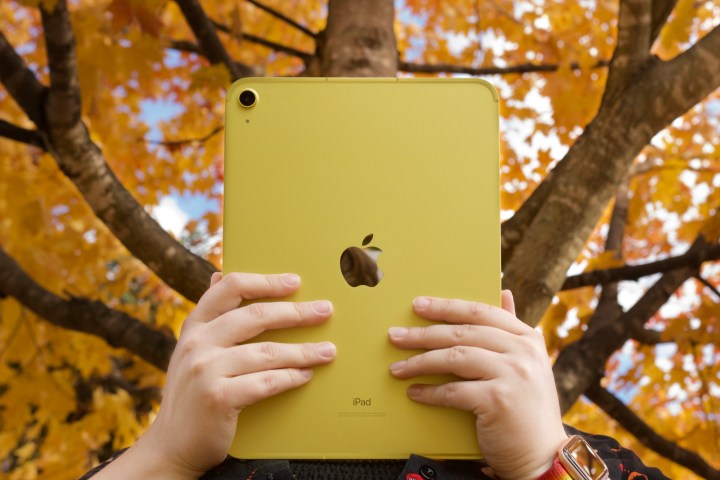 Joe Maring / Digital Trends
Joe Maring / Digital Trends
Apple iPad (2022)
The best value tablet
Pros
Updated, modern design Wonderfully vibrant colors Larger display is fantastic A14 chip is plenty powerful Strong battery life USB-C is finally hereCons
The headphone jack is gone Non-laminated screen Apple Pencil situation is a mess Huge price increaseWhy should you buy this? It's simply the best value tablet you can buy.
Who’s it for? Anybody who wants a tablet that can handle all the basics, without spending too much money.
Why we picked the iPad (2022):
The Apple iPad (2022) marks one of the most significant updates to the baseline iPad in years. With a new design, a larger screen, a more powerful chipset, and an improved camera system, it promises to be the budget tablet many of us have been waiting for.
The latest standard-size iPad has a lot to appreciate. It features a spacious display, impressive performance, and stunning color options. The new design and colors are striking, the iPad operates quickly, and the battery life is dependable.
However, it has some drawbacks that are common with budget tablets. For example, it includes a non-laminated display and only supports the Apple Pencil (USB-C), not the Apple Pencil Pro. These minor shortcomings can become more noticeable compared to other iPads in Apple’s lineup.
If you're looking for an iPad — perhaps for your kids, as a family tablet, or for watching YouTube videos on a budget — the iPad (2022) is an excellent choice.
However, if you have a larger budget and want a more capable device, consider the iPad Air (2024). It offers Apple’s much more powerful M2 chip, which features a dedicated media engine, a higher-quality laminated display, a better chipset, and compatibility with the Apple Pencil Pro.
Apple iPad (2022)
The best value tablet
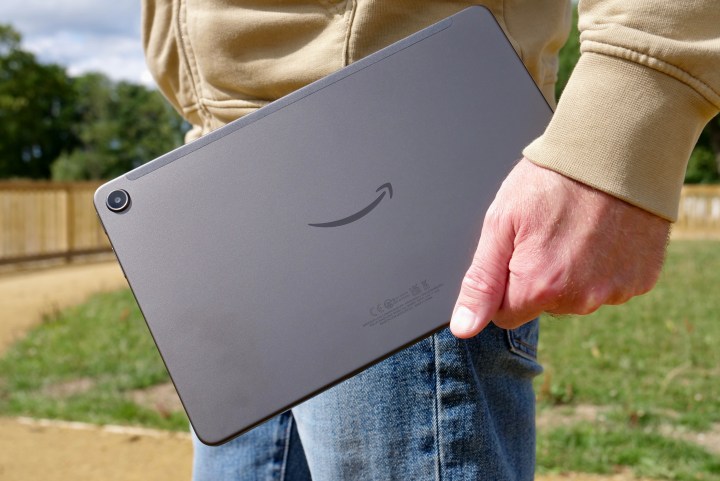 Andy Boxall / Digital Trends
Andy Boxall / Digital Trends
Amazon Fire Max 11
The best value Android tablet
Pros
Great screen for video Keyboard feels good to type on 10-hour-plus battery life Useful kickstand caseCons
Sparse app store Slow chargingWhy should you buy this? It's an affordable Android tablet that will give you the best bang for your buck.
Who’s it for? Folks looking for an affordable Android tablet that handles all the basics well.
Why we picked the Amazon Fire Max 11:
The Amazon Fire Max 11 is a basic little tablet that will get the job done if you are on a tight budget. Design-wise, the Fire Max 11 isn't going to be a standout in any way, but that's fine. The 11-inch size, combined with the simple design, makes it lightweight and incredibly easy to use.
The MediaTek MT8188 octa-core processor is not the absolute best out there, but it handles basic tasks and even casual games just fine. It also has 4GB of RAM, so it's not going to be able to handle super-intensive tasks, but if you need something with more power, then you wouldn't be looking at something this cheap either. For the average person, the specs of the Fire Max 11 are fine for general use.
Plus, this Amazon Fire Max 11 can be used with separate accessories, like a keyboard and stylus, making it a fantastic value if you want to be more productive.
However, the Fire Max 11 won't come with the Google Play Store by default — you'll have to add that manually later on. The Fire Max 11 uses a version of Fire OS that is based on Android 11, so it's a little outdated. It comes with Amazon's own curated app store, so the app choice may be a bit more limited than other Android tablets. But there are ways to get the Google Play Store on the Fire Max 11.
The Amazon Fire Max 11 is far from perfect. Software and app availability are a bit disappointing, and the separate stylus has limited use (it doesn't come with a sketching app by default). It has a 7,500mAh battery that's decent, but the included charging block has a max charging speed of 9W. The Fire Max 11 only supports up to 15W of charging anyway, so even if you use a faster charging brick, it will take around three hours to get a full charge — you better not need to charge up before you head out!
But with battery life being around 10 hours, it should be fine for a full workday, then just charge it up overnight. For the price, the Fire Max 11 is a pretty strong value.
Amazon Fire Max 11
The best value Android tablet
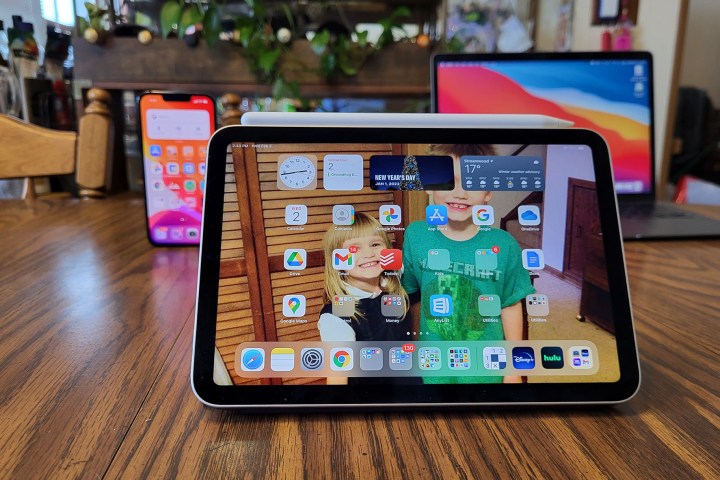 Adam Doud/Digital Trends / Digital Trends
Adam Doud/Digital Trends / Digital Trends
Apple iPad mini 6
The best small tablet
Pros
Big enough to perform most tasks Compact enough to travel easily Powerful performance Loud speakers USB-CCons
Screen is not bright enough Too small for content creation No headphone jackWhy should you buy this? You want a great tablet with a smaller footprint.
Who’s it for? Anyone who wants a smaller tablet.
Why we picked the iPad mini (2021):
It took a while for Apple to update the iPad mini the last time it got refreshed, and it's taken a similarly long time to update the iPad mini's appearance as well. Thankfully, the wait is at an end, and the new iPad mini (also known as the iPad mini 7) has arrived. The new design is now in line with the other premium iPads, meaning the iPad mini is now finally a smaller version of the iPad Air and iPad Pro.
It doesn't match the new iPad Air (2022) where specs are concerned, but it comes pretty close. The iPad mini packs in the A15 Bionic processor — the same chip that's still used in the iPhone 14 and iPhone 14 Plus — and while that's not a match for the new Apple M1 and M2 chips found in the more expensive iPads, it doesn't need to be. The A15 will devour any games you'll want to play, and you're unlikely to need the oomph the M1/M2 provide for content creation apps, because, well, the iPad mini is too small to work well as a content processing machine anyway.
Does that make it a bad choice? Absolutely not. In fact, the smaller size and the A15 chip are the only differences that set the iPad mini (2021) apart from the iPad Air (2022). In every other way, it's really just a smaller version of that best overall tablet. You get the laminated display with an anti-reflective coating, 5G support, a 12MP front camera with Center Stage, a Touch ID sensor in the side button, and much more.
It's supremely portable, stupidly powerful, and an excellent choice if you need something that leverages these strengths. The battery also lasts around a day and a half of use — the same as the iPad Air (2022) — so it's a great choice for taking out and about, and it also pairs up with the second-generation Apple Pencil as well.
While the pint-sized iPad isn't likely to be everyone's cup of tea, the iPad mini is an excellent choice if you're looking for a smaller tablet to carry around. While the smaller size means it won't work with Apple's Magic Keyboard, you can pair it with any Bluetooth keyboard and mouse to turn it into an ultra-portable workstation or just use it for watching videos, reading books, or whatever else you need on the move.
Apple iPad mini 6
The best small tablet
 Nadeem Sarwar / Digital Trends
Nadeem Sarwar / Digital Trends
Apple iPad Pro (2024)
The best big tablet
Pros
Sublime OLED screen Lovely design and build Top-notch speakers Surprisingly good battery life Blistering performance Excellent keyboard and stylusCons
iPadOS is achingly lacking It's extremely expensive Pricey accessoriesWhy should you buy this? The iPad Pro is extremely powerful and offers a huge screen.
Who’s it for? Gamers, creatives, and power users.
**Why we picked the iPad Pro (2024):
The M4 iPad Pro is a polarizing device, lacking any true midpoint when it comes to value. Here’s the gist: the iPad Pro is expensive. However, the 2024 model may be the first that justifies its high price.
Available in 11-inch and 13-inch displays, the latest iPad Pro is packed with impressive performance capabilities. The hardware is exceptional, and the battery life exceeds expectations. The OLED screen is outstanding, and the speakers provide excellent multimedia support. The redesigned Magic Keyboard is a nice addition, though it comes at a premium price. If you’re within the target audience from a software perspective, this device will consistently make you smile. It’s that impressive.
On the flip side, if you don't belong to that fortunate group, iPadOS can be a frustrating experience filled with usability and functional challenges. On a bad day, you might find yourself dealing with a stuck, non-resizable Google Docs window. On a good day, you may even consider ditching your laptop altogether and working exclusively on the iPad Pro.
Apple iPad Pro (2024)
The best big tablet
 Nirave Gondhia / Digital Trends
Nirave Gondhia / Digital Trends
Samsung Galaxy Tab S10 Ultra
The best big Android tablet
Pros
Anti-reflective display tech Solid battery life Great performance Included S Pen Some useful Galaxy AI featuresCons
Too big to be portable Android is poorly optimized for big screens Very, very expensiveWhy should you buy this?: You get a lot for much less than most of the competition.
Who's it for: Anyone who wants a lower-cost tablet that's still offers a huge display should consider this.
Why we picked the Samsung Galaxy Tab S10 Ultra:
You might wonder whether a 14-inch tablet is necessary. Given the popularity of this size in laptops, a tablet with similar dimensions could be quite appealing. After all, bigger often means better, right?
To answer this question, it's important to consider if any Android tablet is truly worth purchasing. The challenges faced by the Galaxy Tab S10 Ultra aren’t due to Samsung, but are inherent to the Android system itself. If you can accept these limitations, then the Galaxy Tab S10 Ultra offers the best large-screen Android experience available.
If you’re looking for a tablet primarily for media consumption and prioritize screen space, this is an excellent choice. It also works well as a companion device if you own a Samsung phone or laptop. However, if you hope to use it as a laptop replacement or expect a seamless experience comparable to the iPad Pro, you might be disappointed. While the Galaxy Tab S10 Ultra excels at multitasking, the software has limitations that it cannot completely overcome.
Overall, we enjoyed using the Galaxy Tab S10 Ultra. It may not be the best for typing on the couch, but the large screen is incredibly useful. It’s perfect for use in the kitchen or for entertainment purposes when you're away from home. If this matches how you use a tablet, the Galaxy Tab S10 Ultra could be the right choice for you. Just keep its limitations in mind, and you’ll find it to be a fantastic device.
Samsung Galaxy Tab S10 Ultra
The best big Android tablet
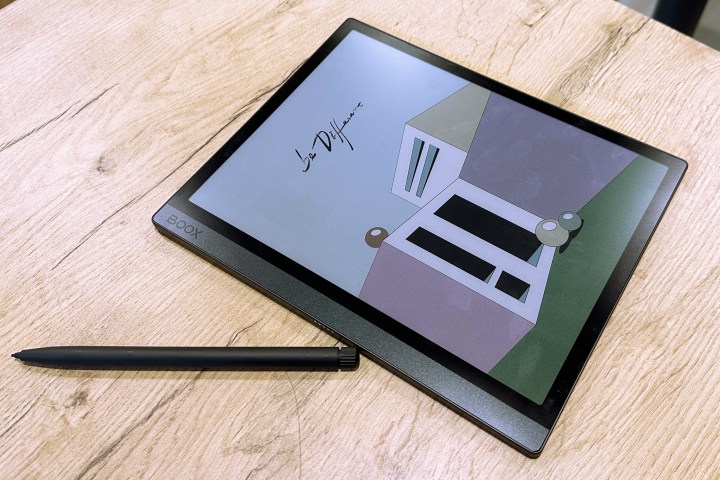 Nadeem Sarwar / Digital Trends
Nadeem Sarwar / Digital Trends
Onyx Boox Tab Ultra C
The best e-ink tablet
Pros
Color e-ink screen is unique Easy-to-read display Plenty of customization tricks Extremely good battery life Storage expansion facility Terrific build and great keyboardCons
Runs dated Android 11 experience E-ink holds back performance Not suited for multimedia consumption Awkward fingerprint button placementWhy should you buy this?: An e-ink display that's also in color is something that's truly unique, but is also good and bad.
Who's it for: Anyone who has been wanting an e-ink display that has a color option.
Why we picked the Onyx Boox Tab Ultra C:
The Onyx Boox Tab Ultra C looks pretty much the same as the Tab Ultra — you have a big hunk of cold metal that feels extremely good in the hands. This is a premium-feeling tablet, and it shows. This 10-inch tablet is a little over a pound, but it does have an extra-wide lip on one of the vertical edges that makes it easier to get a firm grip while using it.
Onyx's Boox Tab Ultra C has a 10.3-inch Kaleido 3 panel that has 2480 x 1860 resolution. But when reproducing colored content, the resolution is just 1240 x 930 pixels, which is just slightly above HD quality. The Kaleido 3 panel is an e-ink display that can produce 4,096 colors and has 16 levels of grayscale intensity control. The dual-channel speaker also sounds surprisingly good, considering that it is essentially an e-reader.
When you use the Boox Tab Ultra C in black-and-white mode, you get a pixel density of 300 pixels per inch (ppi). But in color mode, it drops to 150 ppi. Still, it's a 200% improvement over the previous-gen e-ink Kaleido Plus panels, so that's a plus.
In our use, the Boox Tab Ultra C display is almost like paper in terms of feel and color output. It's not reflective, which is a huge bonus, and you can comfortably view content under direct daylight. The color display is fantastic when reading things like comics. But like all e-ink displays, ghosting is still a thing, especially in multimedia at higher levels of brightness.
The Boox Tab Ultra C comes with a bare-bones version of Android 11, but it does have some convenient shortcuts to make it easier to use. Onyx also includes a set of controls that wouldn't really make sense on a regular Android tablet, but they do make more sense for an e-ink display. And on the inside, you have a Qualcomm Snapdragon 662 chipset, which is commonly found in value-for-money smartphones from Chinese brands such as Xiaomi. It's honestly a little more power than you'd really need for a color e-ink tablet.
Again, this is not the kind of tablet that you should really use for a lot of graphically intensive games and apps. But for working and note-taking, the Boox Tab Ultra C is great.
The price of the Boox Tab Ultra C is a little high, but it is definitely a unique tablet. But that's also a double-edged sword. It's not a performance champ, but this is the best e-ink color display you'll find right now. If that's what you're in the market for, then by all means, check this one out.
Onyx Boox Tab Ultra C
The best e-ink tablet
Frequently Asked Questions
What are the most important things to know when buying a tablet?
You must consider several factors when you’re in the market for a tablet. One of the most critical factors to take into account is the operating system. However, beyond this, you’ll also want to consider the display size, resolution, and type. The display quality is paramount and can make a significant difference in the clarity and crispness of images.
The tablet’s processor and RAM are also critical factors in determining your tablet’s overall performance and speed. Beyond this, look at connectivity and battery life. Consider the connectivity options you require in your tablet – whether you need Wi-Fi or Wi-Fi Cellular models, Bluetooth, and other ports like USB-C, HDMI, and microSD. Battery life is crucial if you use your tablet on the go or away from a power source.
And then there is storage. The more storage you have, the more apps, media files, and documents you can store directly on the device. Consider the storage capacity and whether it is expandable through microSD cards or other options.
In some respects, the most crucial factor is considering your budget and how much you are willing to spend. There are tablets for every budget – from cheaper models to high-end options.
Which operating system is best for you?
If your top consideration is entertainment, and you’re likely to use a lot of apps and games, then we recommend Apple’s iPadOS over Android. There are a lot of polished apps made specifically for the iPad and you have access to all the top subscription services and an extensive content store. It’s also slick and accessible, so anyone can come to grips with it quickly.
Android has a larger selection of free apps and games, though they’re generally less polished, which might be a trade-off you’ll accept. Things are a little complicated by manufacturer UIs, or in the case of Amazon, forked versions of the platform. They can delay Android updates and make the user experience quite different. Amazon’s tablets, for example, run a version of Android called Fire OS and they initially only have access to the limited subset of apps and games that are available in the Amazon Appstore, not the full list that you’ll find in Google’s Play Store.
If you like the idea of accessing the same apps you have on your Windows PC, and you want a business device that ties seamlessly into your Microsoft services, then a tablet running Windows 11 is going to be tempting. It’s powerful, but it’s also relatively expensive to get decent hardware for a good user experience. If you’re not a business user, or you don’t need to run Windows-only apps, it may be overkill.
Can you print from a tablet?
Yes, you can indeed print from a tablet. Check out our guides on how to print from an iPhone and how to print from an Android tablet for all the details you need.
Can you make phone calls on a tablet?
Yes, you can make phone calls on a tablet, but you will need to be connected to the internet. You can either connect to Wi-Fi, which every tablet can do for free, or if you need to make calls while you're out and about beyond the reach of a Wi-Fi network, buy a tablet with cellular support and space for a SIM card. Just bear in mind if you go the SIM card route, you will also have to sign up for a service plan of some kind. Some carriers offer special plans for tablets, but keep in mind that most tablets — and all of Apple's iPads — only support a SIM card for data use, not traditional cellular calling or even SMS/MMS messaging.
You can use FaceTime on an iPad, but there are lots of good alternative video chat apps that work with Android tablets or iPads. Many of them allow you to make audio calls as well. However, the person you want to call usually has to have the same app. Some apps, like Skype, also allow you to call regular landline or mobile phone numbers, but you'll generally have to pay per minute or get a subscription. A good app that will work on Android tablets or iPads that gives you a free number for calling, text messages, and voicemail is Google Voice, but it only works in the U.S.
If you're interested in this option for a business, then you might also consider one of the best VoIP (Voice Over Internet Protocol) services.
Can you text on a tablet?
Yes, you can send text messages from a tablet. If you have an iPad then you can use iMessage, which can connect to your phone to send standard SMS messages and iMessages alike. There are lots of great text messaging apps that work on Android or iOS. You could also use Google Voice if you are based in the U.S. as it gives you a free number for calls and text messages.
How we test
The tablets we test serve as our daily drivers, so we use them extensively to put them through their paces. That means watching movies, gaming, testing out lots of apps, reading, working on them, and even taking photos and shooting videos with them (which is impossible to do without looking stupid). We love new, innovative features, but we can also appreciate classic design done well. Ultimately, we look for tablets that will fulfill the needs of most people, so their ability to serve up entertainment is paramount.

 Lynk
Lynk 


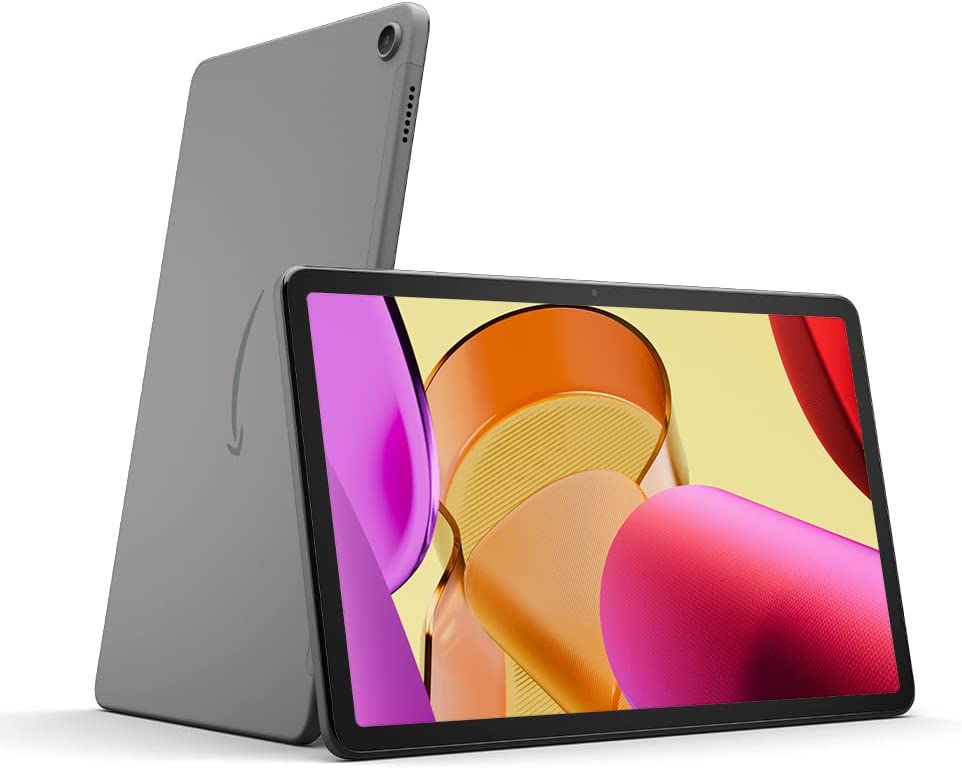
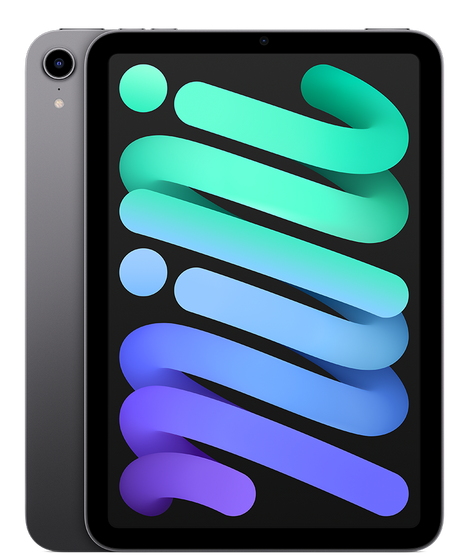












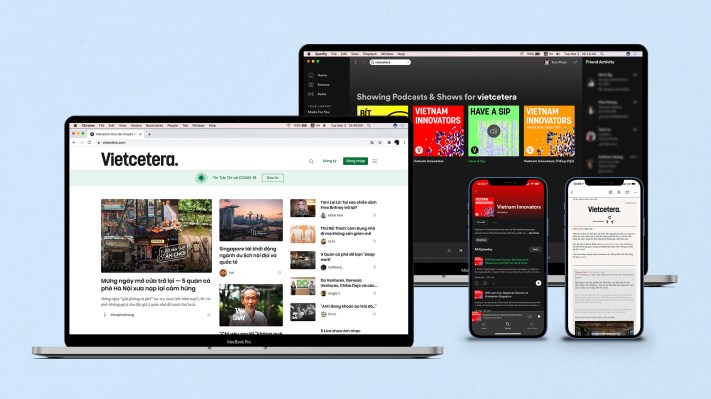










.jpg&h=630&w=1200&q=100&v=6e07dc5773&c=1)
